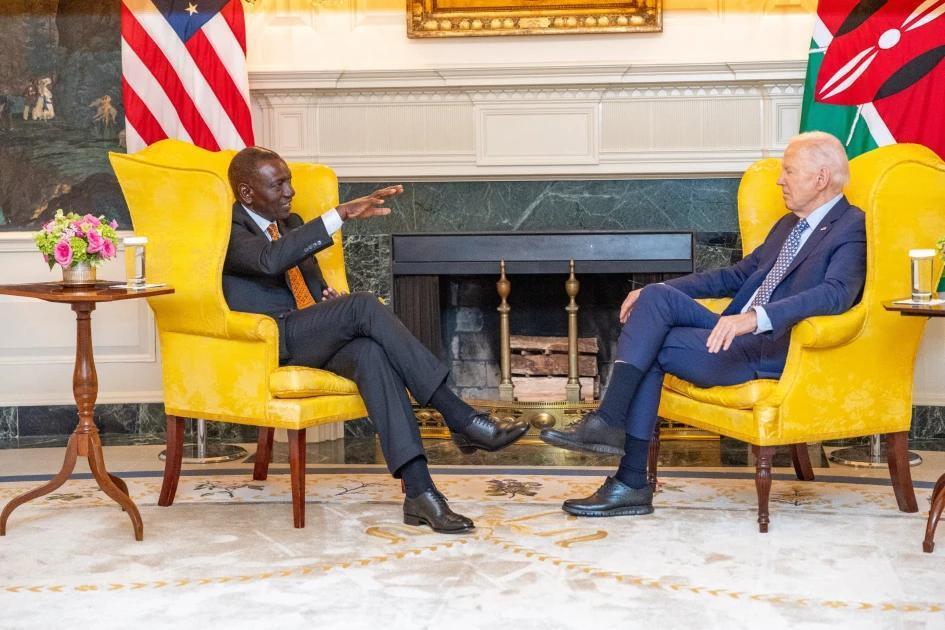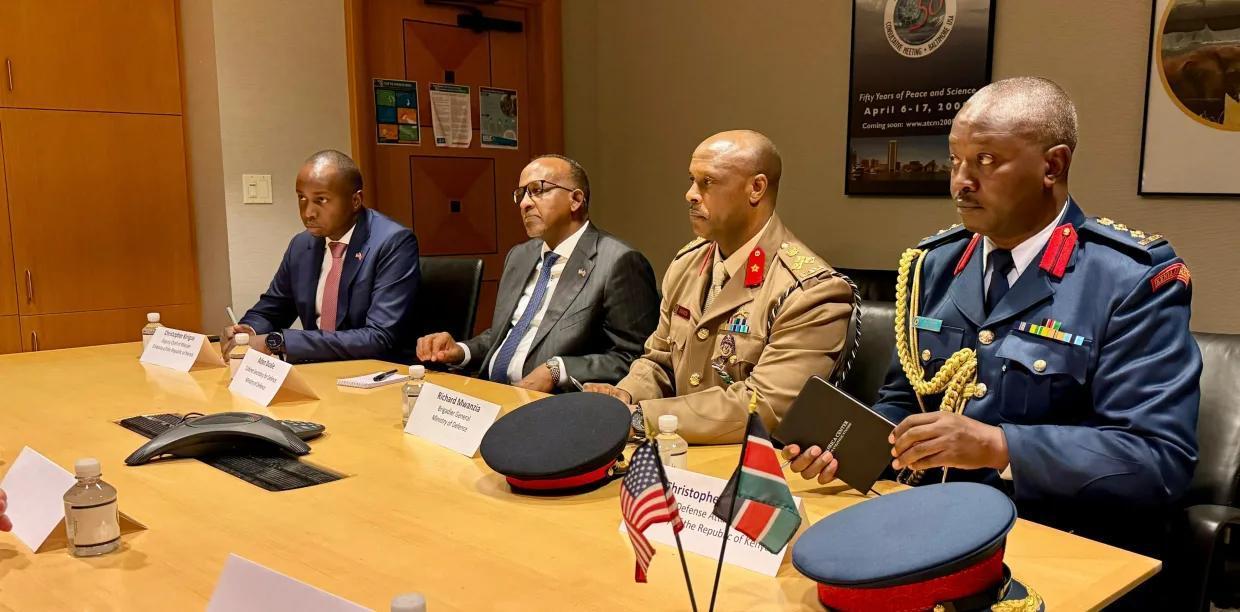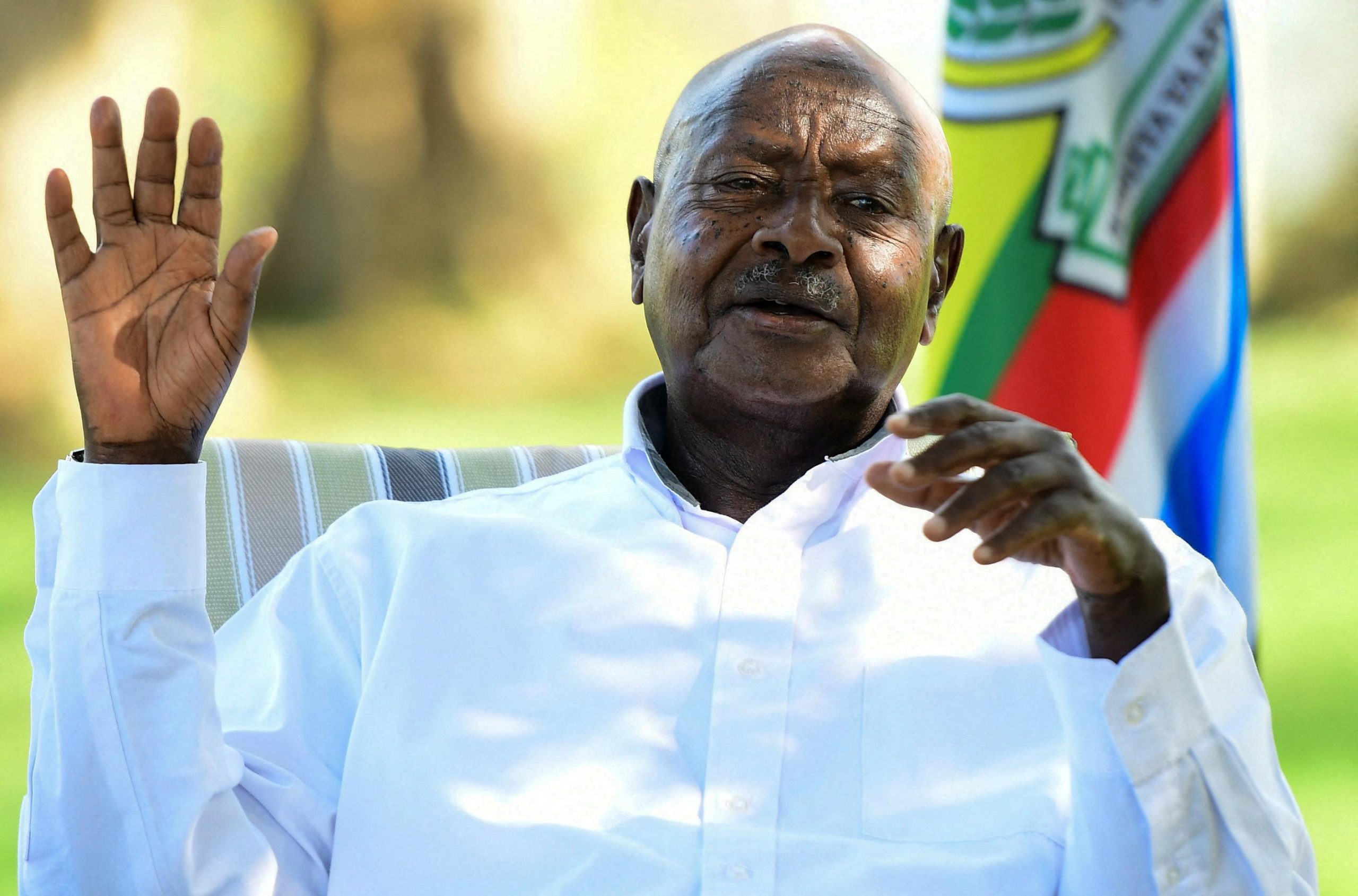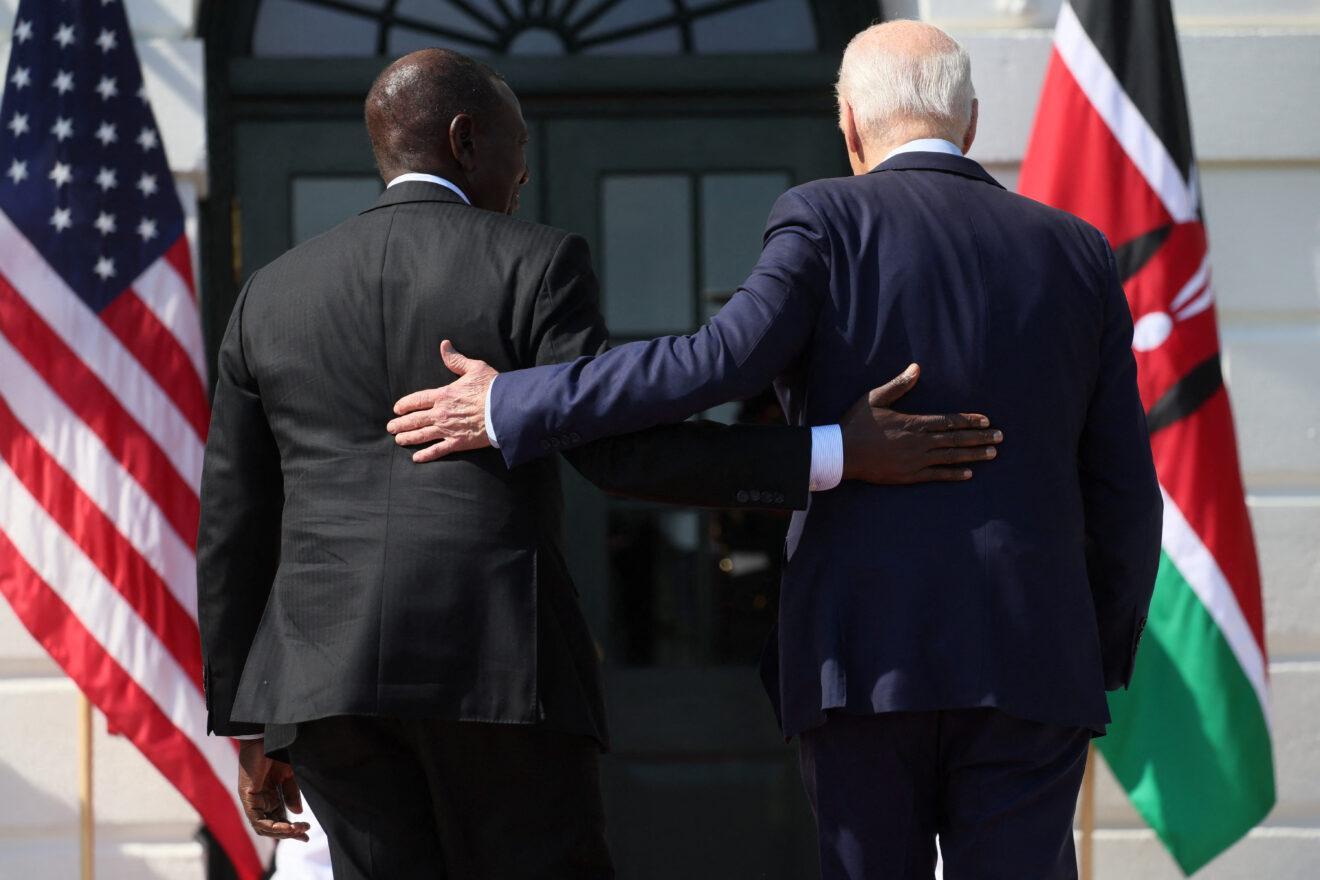Faridah N Kulumba
Africa-Press – Uganda. On 23 May this year, the president of the United States Joe Biden announced that Kenya had been officially designated as Major Non-NATO Ally (MNNA). This followed President Biden notifying Congress of his intent to designate Kenya as a Major Non-NATO Ally.
Grounds and award
According to President Biden, this was in accordance with section 517 of the Foreign Assistance Act of 1961. The U.S president’s statement to Congress explained that he made this designation in recognition of Kenya’s many years of contributions to the United States Africa Command area of responsibility and globally and in recognition of the U.S’s national interest in deepening bilateral Defense and security cooperation with the Government of Kenya.
What it means
Kenya’s designation marks a significant milestone in the bilateral relations between the two countries, enhancing Kenya’s strategic partnership with the United States. Biden sees Kenya as “one of the United States Government’s top counterterrorism and security partners in sub-Saharan Africa, and the designation will demonstrate that the United States sees African contributions to global peace and security as equivalent to those of our Major Non-NATO Allies in other regions. The designation not only reflects Kenya’s strategic importance to the US but also underscores the deepening of bilateral ties that have been steadily growing over the past few decades.
The meaning of Major Non-Nato Ally
According to the U.S. Department of State, the Major Non-NATO Ally (MNNA) status is a designation under U.S. law that provides foreign partners with certain benefits in the areas of Defense trade and security cooperation. The Major Non-NATO Ally designation is a powerful symbol of the close relationship the United States shares with those countries. While MNNA status provides military and economic privileges, it does not entail any security commitments to the designated country.

Advantages to Kenya
The MNNA status is a powerful symbol of the close ties between the government of Kenya and the United States. It provides Kenya with various military and financial advantages that are not available to other countries outside of NATO. The military benefits include access to surplus U.S. Defense supplies, participation in cooperative defence research and development projects, and greater access to U.S. military training programs. The government of Kenya will also have eligibility as a location for the U.S.-owned War Reserve Stockpiles to be placed on its territory outside of U.S. military facilities. Kenya can now enter into agreements with the United States for the cooperative furnishing of training on a bilateral or multilateral basis if the financial arrangements are reciprocal and provide for reimbursement of all U.S. direct costs.
Standards of becoming a MNNA
The MNNA status is granted to countries that have a strategic working relationship with the U.S. in defence and security. Kenya joins an exclusive group of nations, including Japan, Australia, and Israel, that enjoy this privileged status. This development is expected to further strengthen Kenya’s position as a regional leader and a reliable partner in international peace and security efforts.
Kenya is over the moon
Kenya welcomed President Biden’s decision with open arms. According to the president of Kenya William Ruto who was visiting the United States, the initiative will strengthen military cooperation between the two countries. Ruto says Kenya’s friendship with the U.S. is based on a strong foundation of shared values. The two nations’ shared values include believing in freedom, believing in democracy, in the rule of law inclusivity, equality, in shared prosperity that is guaranteed by peace and security.
U.S-Kenya security cooperation

Kenya has been a close U.S. partner in countering al-Shabab, an Islamist militant group based in neighbouring Somalia. Kenya is also leading the Multinational Security Support Mission in Haiti in response to Haiti’s request for international support to address insecurity in the Caribbean nation. The U.S. pledged to provide USD 300 million in assistance and in-kind support to Kenya’s planned mission of sending 1,000 police to Haiti to restore safety and security to the country beset by widespread violence and civil unrest.
Why Uganda was side-lined

Recently Uganda’s relations with the U.S soured after the President of Uganda Yoweri Kaguta Museveni signed the LGBTQ bill into law last year. The U.S. has since slapped sanctions on Ugandan officials for passing the Anti-Homosexuality Act and alleged abuse of human rights. At the beginning of this year, Biden suspended Uganda from the beneficiaries of AGOA. Previously the United States had considered Uganda as a strategic ally in countering terrorism in the region. During President George Bush’s administration, Washington provided Uganda with billions of dollars in logistical assistance to address insecurity in the region especially Somalia. In December 2002, the Bush administration certified that Uganda was again eligible for preferential trading status under the African Growth and Opportunity Act (AGOA). In June 2003, President Bush met with President Museveni at the White House. The Leaders renewed U.S.–Uganda cooperation on the global war on terrorism, regional stability, and HIV/AIDS. However, relations between Washington and Uganda took a new twist with the election of President Barack Obama. Informed officials say U.S. support for Uganda’s military has waned over the years. The U.S.’ decision to abandon Uganda as its major strategic ally in region and embrace Kenya is also seen as a result of Kampala’s warmer ties with Russia and China. In May 2022, Uganda and Tanzania were among the 17 African countries out of 193 that voted to abstain—remain neutral—during the UN General Assembly’s emergency session convened to call for an immediate cessation of violence and withdrawal of the Russian military from Ukraine. Kampala has not condemned Russia’s invasion of Ukraine and continues to strengthen its defence cooperation with Moscow at the chagrin of Washington. On 25th July 2022, when Russia’s Foreign Minister Sergey Lavrov visited Uganda, President Museveni defended his visit by saying that Russia has had good relations with Uganda for the last 100 years, and therefore, Uganda can never take a position against Russia.
U.S’ strategy
Kenyan designation comes at a time when the U.S is seeking to bolster its alliances in Africa, a continent that has become increasingly important in global geopolitics. Kenya’s strategic location and its proactive role in regional security make it a key partner for the U.S. in addressing various challenges, including terrorism and maritime security in the Indian Ocean. Currently, 18 countries which are designated as MNNAs are Argentina, Australia, Bahrain, Brazil, Colombia, Egypt, Israel, Japan, Jordan, Kuwait, Morocco, New Zealand, Pakistan, the Philippines, Qatar, South Korea, Thailand, and Tunisia.
For More News And Analysis About Uganda Follow Africa-Press






